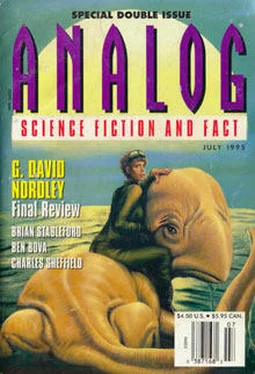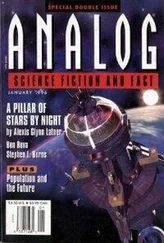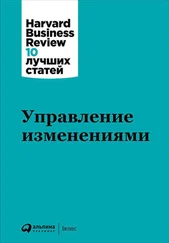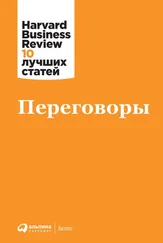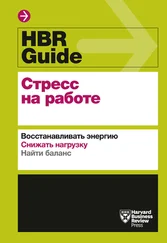G. Nordley - Final Review
Здесь есть возможность читать онлайн «G. Nordley - Final Review» весь текст электронной книги совершенно бесплатно (целиком полную версию без сокращений). В некоторых случаях можно слушать аудио, скачать через торрент в формате fb2 и присутствует краткое содержание. Год выпуска: 1995, Издательство: Dell Magazines, Жанр: Фантастика и фэнтези, на английском языке. Описание произведения, (предисловие) а так же отзывы посетителей доступны на портале библиотеки ЛибКат.
- Название:Final Review
- Автор:
- Издательство:Dell Magazines
- Жанр:
- Год:1995
- ISBN:нет данных
- Рейтинг книги:5 / 5. Голосов: 1
-
Избранное:Добавить в избранное
- Отзывы:
-
Ваша оценка:
- 100
- 1
- 2
- 3
- 4
- 5
Final Review: краткое содержание, описание и аннотация
Предлагаем к чтению аннотацию, описание, краткое содержание или предисловие (зависит от того, что написал сам автор книги «Final Review»). Если вы не нашли необходимую информацию о книге — напишите в комментариях, мы постараемся отыскать её.
EDITOR’S NOTE: Trimus was also the setting for “Poles Apart” [Mid-December 1992] and “Network
[February 1994].
Final Review — читать онлайн бесплатно полную книгу (весь текст) целиком
Ниже представлен текст книги, разбитый по страницам. Система сохранения места последней прочитанной страницы, позволяет с удобством читать онлайн бесплатно книгу «Final Review», без необходимости каждый раз заново искать на чём Вы остановились. Поставьте закладку, и сможете в любой момент перейти на страницу, на которой закончили чтение.
Интервал:
Закладка:
Final Review
by David Nordley

Illustration by Alan M. Clark
I have lived to see the language of a small, off-the-flightway island on a most unlikely, high-gravity, thin-atmosphere, ultraviolet-blasted planet become the native language of beings whose ancestors came from normal worlds a hundred light-years away. I have also seen Kleth base eight arithmetic replace the base twelve and base ten systems of Do’utia and Earth because it is reasonable. And I have seen our public architecture soar, of necessity, to Do’utian scale. So there is much that is unique, improbable and precious about Trimus! But that Trimus speaks English is what I think of whenever I fancy that the evolution of history follows any ordained pattern.
—Go Zom’s notes on the Compact and Charter of Trimus.It was all Monitor Commander Drinnil’ib could do to keep his only slightly overweight mass of Do’utian muscle and blubber calm on his reserved pad in the cozy, by Do’utian standards, Trimus University auditorium. Everyone said that his “Memoirs of a Planet Monitor” was a solid, if unexciting, favorite for the non-fiction award, but his tail would grow no longer with a display of eagerness.
The Human master of ceremonies, Richard Moon, was a bright new humorist with a bushy blond mane around his head who’d won the nonfiction award last year. He, Drin remembered, won it for “The Flying Whale,” an account of balloon-borne anthropologist Doglosha’idn’s gargantuan adventures above the Kleth-set-tled outer pole of Trimus. Richard Moon was saying something intended to be funny, but Drin’s attention was elsewhere.
His friend and frequent partner, Monitor Lieutenant Mary Pearce, sat on the edge of his pad, and playfully nudged his head back and forth to distract him. Was his agitation that obvious?
He nudged her back, gently. It would take six of the tiny humans, laid from foot to head, to equal his length. But in crowded places, she was much more mobile and, for her size, surprisingly strong—she moved his massive beak with relative ease. This was the genetic heritage of a high-gravity planet reinforced by the rigorous Monitor training regimen, Drin reflected, glad for something to distract his thoughts. The waiting was torture.
Mary’s touch comforted him and, in an exotic way, excited him. In the privacy of his mind, he let himself savor that. They both had open, curious minds and a deep affection for each other having saved each other’s lives more than once. In the course of these years together, had touched in ways that more conservative Do’utians would find difficult to accept. His worries about this were getting increasingly easier to handle—but he was careful, very careful, about what he let beyond the beak.
Drinnil’ib had no wives, no beachhold, and played the rogue in Do’utian society—but his people could easily smell the difference between his contentment and the need of an unbeached bull looking for a challenge. Someone, or something, was filling that role in his life—and the scent of that made the Do’utian men he dealt with a little less defensive, especially those who fancied themselves minor beachmasters. His problem was with uncowed Do’utian women who hinted from time to time that they wished to join his nonexistent harem. Drin avoided mating, however, having had nothing but bad experiences in that part of life. If his feelings for Mary helped him avoid that, so be it. It was a private matter.
At last the crowd hushed and the award presenter, noted critic and personality Zo Kim, glided in over them and settled on stage with what passed for dignity in a Kleth—a couple of precise beats with his jet black wings and a firm two point landing with barely a hop. He was alone—a Kleth that liked to live on the edge. By reports, his mate, Bi Tan, was still on the outer pole, working on her next romance. She was well known for not carrying a comset, for reasons both Kleth and writers might understand.
Highly agitated, Zo Kim approached the master of ceremonies.
Moon wasn’t laughing now, though. In fact, as far as Drin could tell, the human looked honestly horrified. Was he refusing to give the presenter the envelope? Drin stifled himself—that might be his award. Zo Kim’s review of Drin’s book had been scathing, as had been his review of Moon’s. The stylistic pollution of this posturing pundit had been tolerated by the community because he could read so much and at least distill the current of content with some accuracy between ill chosen adjectives. After two centuries, toleration had become a kind of grudging, institutional respect. Perhaps Moon, despite his demeanor, was simply tweaking the tail of the too-pompous critic.
“You know, and I will know now! ” Zo Kim shouted at Moon, lifting himself off the stage with a flap of anger to be head high with the human.
Cut the comedy, Drin thought, I want to know too!
“Very well,” Moon answered, barely audible, his posture one of defeat, not challenge. What, Drin wondered, was wrong? “It is your right to know. I was told of Bi Tan’s end by . . . someone I trust, I did not see it myself, but... I have no reason, myself, to doubt the report. But that, of course, does not mean the report is true. There may be a mistake, Zo Kim. I suggest you don’t be convinced without seeing the body.”
“You try to hide this from me just so that I can live long enough to present an award? For some mediocre Monitor’s stinking salacious pandering sadography?”
Sadography? OK, Drin thought, so he hadn’t pulled any punches about the time a primitivist harpoon had gone through Mary’s leg into his back. Occasional violence was a fact of monitor life, but something totally outside the experience of most citizens of Trimus, and he had not quite been prepared for the reaction, either in interest and in vituperation. But, wait a minute—had Zo Kim just said that he’d won? The tip of Drin’s tail lifted off his mat in anticipation.
Zo Kim snatched the envelope from poor Moon’s hand, tore it three times with the incredible quickness of the Kleth, and threw the pieces like so much confetti out from the stage. Now Drin was on his feet, both hearts pounding. Pollution! Why this? The hall resounded with rumbles, whistles, and gasps.
Then, in one horrible second, Zo Kim’s behavior made sense to Drin, like the sonic image of an iceberg resolving itself right in front of him where he’d been expecting a school of fish. Bi Tan’s end? Someone had just told Zo Kim that his mate had died. In the Kleth and their close relatives, the death of a mate triggered an involuntary, emotional loss-driven process whereby the remaining mate could both defend and feed its young, for a day or two. It happened whether they had young or not—Kleth were mated for life from hatching and could not mate again. It was as if the two were one organism, but in Zo Kim’s case...
“Drop dead!” a human voice yelled. Someone else probably hadn’t figured it out yet. Drin located the voice—a black-bearded man, short even by human standards, but stocky and strong looking. Gorman Stendt—Drin knew him by reputation—an author of heroic human space adventures who illustrated them with intricately detailed working models of imagined alien technology, working aircraft, war machines, cities and space stations, all rendered at micro scale. They floated or crawled around you as you listened to the narrative. He had an unlinked cybernetic system at his farm, eight-squared macrounits out of Trimus City, so each new work was a genuine surprise. His manners, Drin surmised, must have suffered from his isolation.
Читать дальшеИнтервал:
Закладка:
Похожие книги на «Final Review»
Представляем Вашему вниманию похожие книги на «Final Review» списком для выбора. Мы отобрали схожую по названию и смыслу литературу в надежде предоставить читателям больше вариантов отыскать новые, интересные, ещё непрочитанные произведения.
Обсуждение, отзывы о книге «Final Review» и просто собственные мнения читателей. Оставьте ваши комментарии, напишите, что Вы думаете о произведении, его смысле или главных героях. Укажите что конкретно понравилось, а что нет, и почему Вы так считаете.
